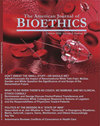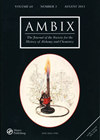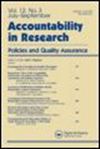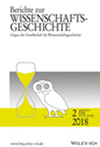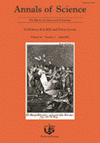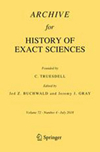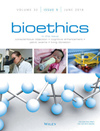期刊简介
Language Policy is highly relevant to scholars, students, specialists and policy-makers working in the fields of applied linguistics, language policy, sociolinguistics, and language teaching and learning. The journal aims to contribute to the field by publishing high-quality studies that build a sound theoretical understanding of the field of language policy and cover a range of cases, situations and regions worldwide. A distinguishing feature of this journal is its focus on various dimensions of language educational policy. Language education policy includes decisions about which languages are to be used as a medium of instruction and/or taught in schools, as well as analysis of these policies within their social, ethnic, religious, political, cultural and economic contexts. The journal aims to continue its tradition of bringing together solid scholarship on language policy and language education policy from around the world but also to expand its direction into new areas. The editors are very interested in papers that explore language policy not only at national levels but also at the institutional levels of schools, workplaces, families, health services, media and other entities. In particular, we welcome theoretical and empirical papers with sound qualitative or quantitative bases that critically explore how language policies are developed at local and regional levels, as well as on how they are enacted, contested and negotiated by the targets of that policy themselves. We seek papers on the above topics as they are researched and informed through interdisciplinary work within related fields such as education, anthropology, politics, linguistics, economics, law, history, ecology, and geography. We particularly are interested in papers from lesser-covered parts of the world of Africa and Asia. Specifically we encourage papers in the following areas: Detailed accounts of promoting and managing language (education) policy (who, what, why, and how) in local, institutional, national and global contexts. Research papers on the development, implementation and effects of language policies, including implications for minority and majority languages, endangered languages, lingua francas and linguistic human rights; Accounts of language policy development and implementation by governments and governmental agencies, non-governmental organizations and business enterprises, with a critical perspective (not only descriptive). Accounts of attempts made by ethnic, religious and minority groups to establish, resist, or modify language policies (language policies 'from below'); Theoretically and empirically informed papers addressing the enactment of language policy in public spaces, cyberspace and the broader language ecology (e.g., linguistic landscapes, sociocultural and ethnographic perspectives on language policy); Review pieces of theory or research that contribute broadly to our understanding of language policy, including of how individual interests and practices interact with policy. We also welcome proposals for special guest-edited thematic issues on any of the topics above, and short commentaries on topical issues in language policy or reactions to papers published in the journal.
语言政策与应用语言学、语言政策、社会语言学和语言教学领域的学者、学生、专家和政策制定者密切相关。该杂志旨在通过发表高质量的研究报告为该领域做出贡献,这些研究报告建立了对语言政策领域的良好理论理解,并涵盖了世界各地的一系列案例、情况和地区。这本杂志的一个显著特点是它对语言教育政策的各个方面的关注。语言教育政策包括决定哪些语言将被用作教学媒介和/或在学校教授,以及在其社会、种族、宗教、政治、文化和经济背景下对这些政策进行分析。该杂志旨在继续其传统,汇集来自世界各地的语言政策和语言教育政策的坚实学术,但也扩大其方向到新的领域。编辑们对那些不仅在国家层面而且在学校、工作场所、家庭、卫生服务、媒体和其他实体的机构层面探讨语言政策的论文非常感兴趣。我们特别欢迎那些具有良好的定性或定量基础的理论和实证论文,这些论文批判性地探讨了语言政策在地方和区域层面是如何制定的,以及政策目标本身是如何制定、争议和谈判的。我们寻求关于上述主题的论文,因为它们是通过相关领域的跨学科工作进行研究和提供信息,如教育,人类学,政治,语言学,经济学,法律,历史,生态学和地理学。我们特别感兴趣的是来自世界上报道较少的非洲和亚洲地区的论文。我们特别鼓励以下领域的论文:详细说明在地方、机构、国家和全球背景下促进和管理语言(教育)政策(谁、什么、为什么和如何)。关于语言政策的制定、执行和影响的研究文件,包括对少数群体和多数群体语言、濒危语言、通用语和语言人权的影响;以批判性的视角(不仅仅是描述性的)叙述各国政府和政府机构、非政府组织和商业企业制定和实施语言政策的情况。关于种族、宗教和少数群体试图制定、抵制或修改语言政策的叙述(语言政策“见下文”);从理论和经验上阐述公共空间、网络空间和更广泛的语言生态环境中语言政策制定的论文(例如,语言景观、语言政策的社会文化和人种学观点);回顾那些对我们理解语言政策有广泛贡献的理论或研究,包括个人利益和实践如何与政策互动。我们也欢迎关于上述任何主题的特别客座编辑专题的建议,以及关于语言政策专题的简短评论或对杂志上发表的论文的反应。
《Language Policy》期刊已被查看: 次

